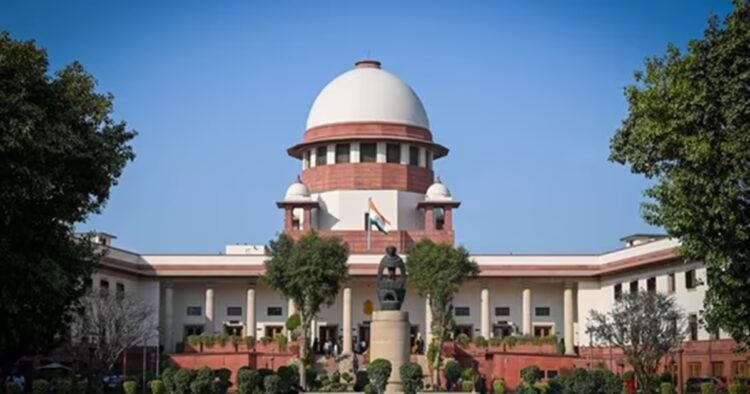The Supreme Court of India has agreed to consider setting up a constitution bench to hear challenges against the passage of certain laws, such as the Aadhaar Act, which were introduced as money bills. This decision was made on Monday by a bench led by Chief Justice of India (CJI) D Y Chandrachud, along with justices J B Pardiwala and Manoj Misra.
Senior advocate Kapil Sibal, who is also the head of the Supreme Court Bar Association, urged the court to list these petitions for hearing. He informed the court that all necessary pleadings were complete. Responding, the CJI stated that he would decide on forming the constitution benches.
Earlier, the Supreme Court had indicated its intention to form a seven-judge bench to examine the validity of passing laws like the Aadhaar Act as money bills. This move aims to address the controversy surrounding the government’s use of money bills to pass legislation.
The controversy began when the government introduced significant legislation, such as the Aadhaar Act and amendments to the Prevention of Money Laundering Act (PMLA), as money bills. This strategy was seen as a way to bypass the Rajya Sabha, where the government did not have a majority at the time.
A money bill is a special type of legislation that can only be introduced in the Lok Sabha, the lower house of India’s Parliament. The Rajya Sabha, the upper house, cannot amend or reject a money bill. It can only make recommendations, which the Lok Sabha may choose to accept or ignore. This makes the passage of money bills a streamlined process, limiting the Rajya Sabha’s role.
The Supreme Court’s decision to potentially form a constitutional bench highlights the importance and complexity of the issue. The upcoming hearings will determine whether the government’s use of money bills to pass significant legislation was constitutionally valid. This decision will have far-reaching implications for the legislative process and the balance of power between the two houses of Parliament.

















Comments